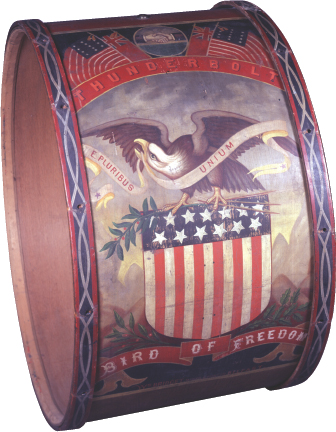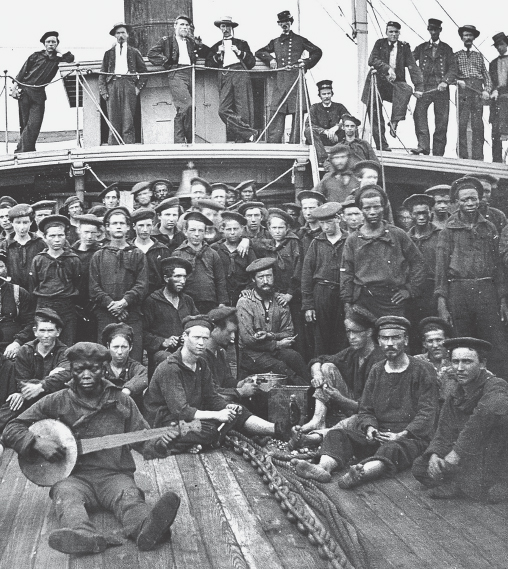The Crucible of War, 1861–1865

Printed Page 386 Chapter Chronology
The Crucible of War, 1861-1865

QUICK START
Quickly learn what is important in this chapter by doing the following:
- READ the Chapter Outline to see how the chapter is organized.
- SKIM the Chronology to see what will be covered.
When you are ready, download the Guided Reading Exercise, then read the chapter and the Essential Questions for each section and complete the Guided Reading Exercise as you go. Then use LearningCurve and the Chapter Review to check what you know.
On the night of September 21, 1862, in Wilmington, North Carolina, twenty-four-year-old William Gould and seven other runaway slaves crowded into a small boat on the Cape Fear River. They rowed hard throughout the night, reaching the Atlantic Ocean by dawn. They made for the Union navy patrolling offshore. At 10:30 that morning, the USS Cambridge took the men aboard. Astonishingly, on that same day President Abraham Lincoln revealed his intention to issue a proclamation of emancipation freeing the slaves in the Confederate states. Although Gould was not legally free, the U.S. Navy needed sailors and cared little about the formal status of runaway slaves. Within days, all eight runaways became sailors in the U.S. Navy.

William Gould could read and write, and he began keeping a diary. In some ways, Gould's naval experience looked like that of a white sailor. He found duty on a ship in the blockading squadron both boring and exhilarating, as days of tedious work were occasionally interrupted by a moment of "daring exploit."
But Gould's Civil War experience was shaped by his race. Like most black men in the Union military, he saw service as an opportunity to fight slavery. Gould linked union and freedom, "the holiest of all causes." Gould witnessed a number of ugly racial incidents, however. When a black regiment came aboard, "they were treated verry rough by the crew," he said. The white sailors "refused to let them eat off the mess pans and called them all kinds of names[;] ...in all they was treated shamefully."
Still, Gould was proud of his service in the navy and monitored the progress of racial equality during the war. In March 1865, he celebrated the "passage of an amendment of the Con[sti]tution prohibiting slavery througho[ut] the United States." And a month later, he thrilled to the "Glad Tidings that the Stars and Stripe[s] had been planted over the Capital of the D — nd Confederacy by the invincible Grant." He added, we must not forget the "Mayrters to the cau[se] of Right and Equality."
But for the first eighteen months of the war, federal soldiers officially fought only to uphold the Constitution and preserve the nation. Only with the Emancipation Proclamation did the northern war effort take on a dual purpose: to save the Union and to free the slaves.
Even if the Civil War had not touched slavery, the conflict still would have transformed America. As the world's first modern war, it mobilized the entire populations of North and South, harnessed the productive capacities of both economies, and produced battles that fielded 200,000 soldiers and created casualties in the tens of thousands. The carnage lasted four years and cost the nation at least 620,000 lives. The war helped mold the modern American nation-state, and the federal government emerged with new power and responsibility over national life. The war encouraged industrialization. It tore families apart and pushed women into new work and roles. But because the war ended slavery, it had truly revolutionary meaning.
Recalling the Civil War years, Frederick Douglass said, "It is something to couple one's name with great occasions." It was something — for William Gould and millions of other Americans. Whether they fought for the Confederacy or the Union, whether they labored behind the lines to supply Yankee or rebel soldiers, whether they prayed for the safe return of Northerners or Southerners, all Americans endured the crucible of war. But the war affected no group more than the 4 million African Americans who saw its beginning as slaves and emerged as free people.